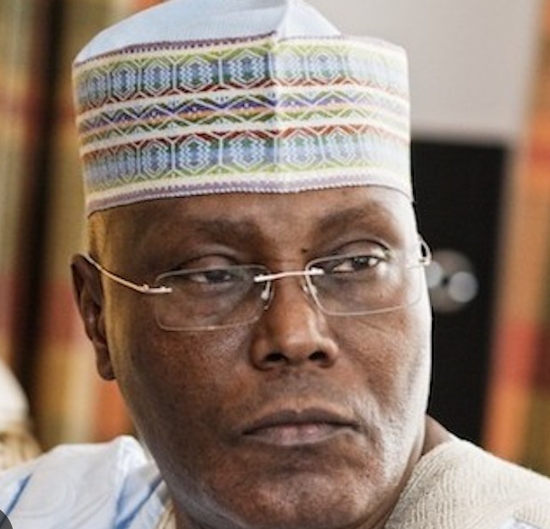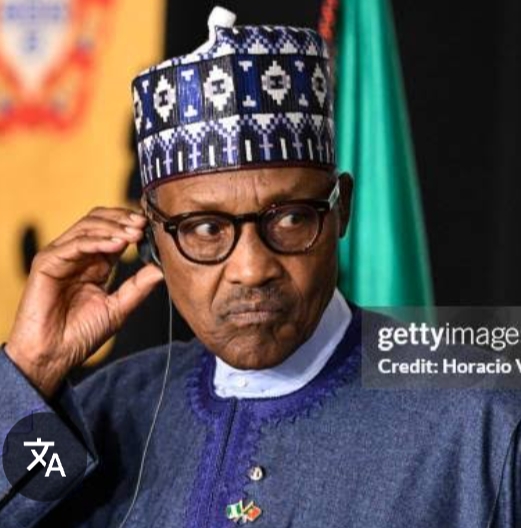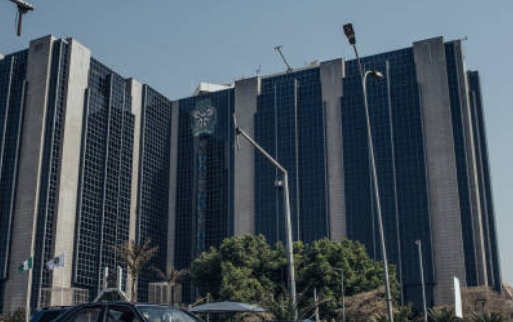News
52 federal varsities may collapse over hike in electricity tariff, VCs tell FG

The Committee of Vice Chancellors of Nigerian Universities has warned that about 52 Federal universities may collapse in the country soon over the recent hike in electricity tariff which has increased their overhead costs.
These VCs gave the warning after the tariff hike by the Discos increased the electricity bill of the federal universities by over 300 per cent.
Recall that the VCs had earlier last month asked the Federal Government to provide a concessionary electricity tariff rate for the universities.
They said the appeal was based on the need to alleviate the financial burden of high electricity tariffs on these institutions.
However, speaking with our correspondent on Friday, Secretary to the CVCNU, Prof. Yakubu Ochefu, said if the Federal Government did not prevail on the Discos to reduce the electricity tariff, 52 federal universities might collapse soon as high overhead cost will cripple their operations.
He said the Federal Government had already funded solar power plants for about 10 out of the 62 federal universities in the country, leaving the remaining 52 institutions to rely on the Discos for electricity supply as generating power independently has proven very costly for them.
“The Federal Government has funded solar power plants in some universities like the University of Agriculture in Makurdi. They don’t depend on the Discos as they generate their own power. But there are less than 10 federal universities that have such solar power plants out of about 62 federal universities, which means 52 others do not have.
“That is why we say in the interim, they should remove us from Band A and create a discretionary band for educational establishments so that we can be paying the rates we are paying before or something slightly higher. But to pay the commercial rates that everybody is paying is not sustainable. It will cripple the operations of the universities,” the VCs spokesman stated.
“Our bills have gone by 300 per cent, which translates into an increase in overhead costs for the University Vice Chancellors. For the Federal Universities, we have written to the President to let him know that with the hike, we cannot sustain the operations of the federal institutions and something must be done.
“So, it is either they (the government) move us from Band A to another band, which will give us reduced costs, support us in our effort to move to our alternate power sources or allow us to charge at economic rate so that we can pass the cost down to the end users which are the students. The Federal Government has to sit and consider any of the options for us. But they are yet to respond to us.”
On whether increasing the allocations to the university by the Federal Government will cover up for the electricity cost, Prof Ochefu said, “Even if they increase the allocation, it will not make a big impact.
“As you have read, the situation is already affecting the students. The UNIBEN closed down today because of the students’ protest over electricity. If nothing is done urgently, university operations will grind to a halt very soon.”
Reacting to the development, a don in the University of Ibadan, Prof Francis Egbokhare, said, “I quite understand what the VC committee is talking about because the universities are not allowed to exceed a certain level of charges for fees.
“If the universities are allowed to charge on the basis of consumption, every student and lecturer will be mandated to pay for electricity used. To avoid this, the government and the universities should enter into a workable agreement.”
News
Kill your 2027 election, PDP, LP chieftains advise Atiku

By Kayode Sanni-Arewa
A member of the National Executive Committee of the Peoples Democratic Party, Diran Odeyemi, and a chieftain of the Labour Party, Anslem Eragbe, have advised former Vice President Atiku Abubakar to kill his 2027 presidential election ambition.
Both Odeyemi and Eragbe said the South should be allowed to rule for eight years.
They said the 2027 southern president might not necessarily be President Bola Tinubu.
Eragbe, in an interview with Sunday PUNCH, argued that Atiku should not have contested the 2023 presidential election because it was the turn of the South to produce a president.
He said, “Atiku was not supposed to contest the 2023 presidential election because it was the turn of southern Nigeria. It is the turn of the South till 2031.
“Being a former Vice President of Nigeria for eight years; Atiku knows Nigeria’s power drill and equation. He should support younger Nigerians to power and provide guidance in 2027.”
Asked if the former Vice President would breach any law if he chooses to run for the nation’s highest office in 2027, Eragbe said the PDP stalwart “is entitled to his ambition and aspirations, adding however that “2027 – 2031 is for southern Nigeria.”
According to him, the 2027 presidency shall remain in southern Nigeria and should be zoned to the South-South region.
“It should be further micro-zoned to the (defunct) mid-Western region. I mean the defunct Bendel, now Edo and Delta states. We expect the major political parties to do this for equity, justice, fairness and parity.
“However, should President Bola Tinubu, win the 2027 presidential election and continue till 2031, power shall return to Northern Nigeria,” he added.
The former President of the Student Union Government of Ahmadu Bello University, Zaria, added that when compared with other geo-political zones in the country, the South-South had spent the least number of years on the presidential seat.
“The region that has ruled the least in Nigeria is the South-South with only five years under Goodluck Jonathan and should rule Nigeria again beginning from 2027.
“When put together, the North-Central spent a total of 17 years and 11 months, North-West, 17 years, three months; North-East, 10 years, three months; South-West, 15 years, four months by the time Tinubu finishes his term in May 2027; South East spent five years and nine months and the South-South, the only region to spend five years only on the presidential seat,” he added.
Eragbe called on the political parties to identify credible politicians, regardless of their financial status, to fly their flags for the various elective offices, stressing that 2027 would be another opportunity to right the wrongs of the past.
Speaking with Sunday PUNCH, Odeyemi stated that the ex-vice president’s participation in the 2023 presidential election and his perceived ambitions for 2027 were the causes of PDP crisis.
He charged Atiku to bury his ambition, adding that once the former vice president failed to declare interest in 2027, the crisis in the party would be over.
The 2023 election was originally supposed to be between southerners, as former President Muhammadu Buhari, a northerner, had just completed eight years in office. However, Atiku insisted on exercising his rights, which is why there is a crisis in the PDP,” he stated.
News
Why Buhari govt was shoved aside – IBB

By Kayode Sanni-Arewa
Ex-military head of state, Ibrahim Badamasi Babangida (IBB), has stated that he shoved aside Muhammadu Buhari’s regime because he believed his policies were detrimental to the nation’s progress.
The former military leader disclosed this in his autobiography, ‘A Journey In Service’, launched in Abuja on Thursday.
Babangida was chief of staff to Buhari, who ousted Shehu Shagari’s civilian government in the December 31, 1983 coup.
After the military coup that replaced the civilian government of Shehu Shagari with a military regime led by Major General Muhammadu Buhari, Ibrahim Babangida assumed the Chief of Army Staff role.
However, he became increasingly dissatisfied with the Buhari government’s policies and leadership style, which he described as draconian.
Recalling how he journeyed from Minna to Lagos on August 27, 1985, to assume office, Babangida said tension had already begun to build up since the start of the year, and a change in leadership had become necessary.
He said, “On that day, it became my lot to step into the saddle of national leadership on behalf of the Nigerian armed forces. The change in leadership had become necessary as a response to the worsening mood of the nation and growing concern about our future as a people. All through the previous day, as we flew from Minna and drove through Lagos towards Bonny Camp, I was deeply reflecting on how we as a nation got to this point and how and why I found myself at this juncture of fate.
“By the beginning of 1985, the citizenry had become apprehensive about the future of our country.
The atmosphere was precarious and fraught with ominous signs of clear and present danger. It was clear to the more discerning leadership of the armed forces that our initial rescue mission of 1983 had largely miscarried. We now stood the risk of having the armed forces split down the line because our rescue mission had largely derailed. If the armed forces imploded, the nation would go with it, and the end was just too frightening to contemplate.
“Divisions of opinion within the armed forces had come to replace the unanimity of purpose that informed the December 1983 change of government. In state affairs, the armed forces, as the only remaining institution of national cohesion, were becoming torn into factions; something needed to be done lest we lose the nation itself. My greatest fear was that division of opinion and views within the armed forces could lead to factionalisation in the military. If allowed to continue and gain root, grave dangers lay ahead.”
News
How CBN Spent $8bn On Naira Defence Against Dollar At FX Market

By Kayode Sanni-Arewa
The Chief Executive Officer of Financial Derivatives, Bismark Rewane, has revealed that the Nigerian government, through the Central Bank of Nigeria, has spent almost $8 billion defending the naira at the foreign exchange market in the last months.
Rewane, a renowned economist, disclosed this at the weekend in an interview with Channels Television.
He was reacting to the decision by the Monetary Policy Committee to retain the country’s interest rate at 27.50 percent at the same time, maintaining other MPR parameters.
Explaining the reason the Naira has appreciated to N1,505 and N1,507 across parallel and official foreign exchange markets, he noted that the apex bank has several initiatives to support the country’s currency.
“We’ve also borrowed $4 billion in bond issues. When you take a look at that, you’ll see there is a lot of work. We’ve actually spent almost $8 billion trying to support the naira at current levels,” Rewane stated.
According to him, Nigeria’s January inflation figure, which dropped to 24.48 percent after the Consumer Price Index rebasing, does not reflect the reality of ordinary Nigerians.
“There’s no way that inflation can reduce by 10% in a short period. The man on the street does not believe that inflation has come down as sharply as that,” he said.
-

 News17 hours ago
News17 hours agoJust in : Senator Gumau is dead
-

 News18 hours ago
News18 hours ago10th NASS Committed to Constitutional Reforms – Kalu
-

 News24 hours ago
News24 hours agoBetara Celebrates Governor Bago @51
-

 Metro10 hours ago
Metro10 hours agoInsecurity! Gunmen invade church, slash pastor’s 2 fingers
-

 News18 hours ago
News18 hours agoRep Salam Congratulates Governor Adeleke On Successful Conduct Of LG Elections
-

 Metro10 hours ago
Metro10 hours agoFire engulfs MTN office in Oyo
-

 News17 hours ago
News17 hours agoI have never insulted President Tinubu in my entire life”-Gov Adeleke
-

 News17 hours ago
News17 hours agoPolice seal OSSIEC office, officials nabbed, says chairman







